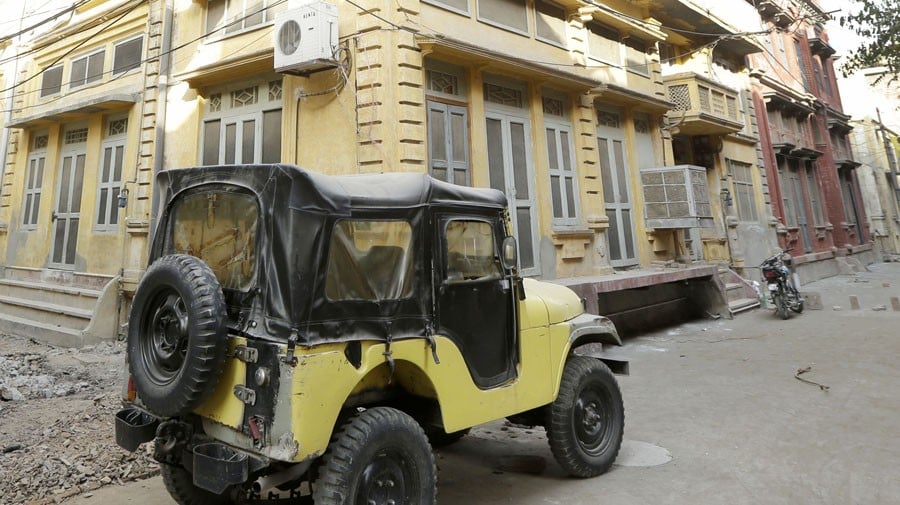
How people bond with each other in the old mohallas

Death educates you in unintended ways. It’s been about two months since my khalu passed away. We were there with him in his last hour, in the hospital near their house where he was rushed to after a massive heart attack.
My aunt and her husband didn’t have a child. They decided to come and live close to us in an apartment in a mohallah when I was small. As we moved out to live in a bigger house in a more ‘posh’ area, as circumstances demanded about more than 30 years ago, they decided to keep living in the same neighbourhood, close to the Lahore High Court. Because there was a lot of ‘raunaq’ and life was more comfortable and familiar. My aunt had already made many friends there.
As we reached the hospital, we saw a neighbour’s family take care of everything as my aunt sat virtually collapsed on a chair. A girl from the family, who happened to be a doctor, had taken charge of khalu’s medical needs and was seen coming in and out of the ICU. She quickly stopped to explain to us what was happening. Her brother kept rushing to the pharmacy and back, getting stuff needed in the ICU. My khalu had multiple problems; so the doctors were making some desperate attempts to save him.
At the hospital it felt like we were strangers while the neighbours who had brought them were family. Soon, other neighbours started coming in, all wearing a look of deep concern. Meanwhile, the doctors thought of shifting my khalu to a better facility. The same doctor girl started making phone calls to other hospitals to make arrangements.
After some time, they decided the patient’s condition didn’t allow him to be moved and the blood transfusions must start at once. The haemoglobin had dropped drastically and we were told he would need many bottles of B+ blood. Not knowing what to do, I started putting the requests on a few WhatsApp groups and Facebook. Before we knew, there were three young donors already present, from the same mohallah, ready to be screened. I too got one positive response from a friend on messenger. As the donor went in, my khalu’s condition worsened and the doctors started making attempts to revive his heart through electric shocks and what not. They did it for what seemed like eternity but nothing worked. They gave up.
It was close to midnight. We came home, my aunt’s, to a small house full of people. And then the morning after, a swarm of visitors trying to comfort and condole. The funeral and qul were arranged in a cousin’s bigger house. The rest of the time my aunt was home. It was a whole new experience. Her house was crowded with not just friends but my khalu’s students, women from the katchi abadi nearby who work for them, the relatives of these women, women from the shopkeepers’ households, lawyers, colleagues, young, old, very old.
It seemed like those people cared. It was a product of mutual care sustained and strengthened over years and years of living together. I wish I could also see how they share their happy moments.
But that’s an aspect of life that is so drastically missing from the lives of those who choose to live in newer neighbourhoods, away from the mohallas, in their comparatively sprawling houses. The secluded, individual lives are devoid of this buzz and they/we would do anything to protect their/our ‘privacy.’ Over there nothing is private. Everyone knows everyone. There are no security issues, and between themselves they know how to sort it if one arises.
In those two three days, I became really keen to move to that part of the city. But I’m sure the people there are as keen to move out because, all said, the living conditions are far from perfect. Still, I discovered or rather rediscovered another side of life, and am so grateful that I did.